Your enforcement plan will likely depend on your residents and their behaviour, whether or not there is damage to the unit, and the extent of second-hand smoke exposure to other tenants.
You always have the choice to take a soft or hard approach with smoking violations. Regardless, a smoke-free policy needs clear and well-communicated consequences and outcomes for noncompliance (e.g., warnings and penalties).
Steps to take if there is evidence that a violation has occurred
- Talk to the resident and try to achieve a verbal agreement regarding compliance. Review and explain the smoke-free policy with the resident.
- If an agreement is reached, it can be helpful to put it in writing for future reference. Have the resident sign a copy of the dated letter from the landlord to the resident, confirming the discussion and the resident’s agreement to abide by the smoke-free policy.
- If the smoking continues, issue a caution notice advising the resident that:
- they have breached the terms of their contract/house rules/tenancy agreement (explain how);
- they are requested to smoke only where permitted under the policy (give options); and,
- ongoing failure to comply with the policy could result in the tenancy ending (eviction).
- Document all violations, and if possible, get witnesses who would be able and willing to testify to incidents of smoking by the resident if necessary.
- Conduct regular inspections.
- Actively address complaints of second-hand smoke exposure.
Download a sample complaint flowchart, complaint log and caution notice.
If a tenant commits a series of breaches of the smoke-free policy, a landlord has grounds to end the tenancy. As with any termination of a tenancy, if the tenant disputes the termination, it may need to be resolved through the Residential Tenancy Dispute Resolution Service. This process will be easier for the landlord if the smoke-free policy is included in the tenant’s lease.
If you are bound by the Residential Tenancy Act (RTA) and a current resident on a periodic lease refuses to sign an amendment to their tenancy agreement, there may be legal grounds to hold them to your smoke-free policy. A strong argument can be made that the RTA must permit a landlord to impose rules where reasonably necessary to fulfill their covenants. This includes the ability to prohibit smoking in individual units if a case can be made that second-hand smoke may become injurious or dangerous to the public health. This argument, however, has yet to be tested in Alberta court.




